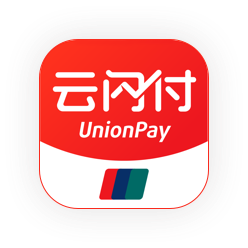
Alibaba Group Holding Limited, branded as Alibaba, is a Chinese multinational technology company specializing in e-commerce, retail, Internet, and technology. Founded on 28 June 1999 in Hangzhou, Zhejiang, the company provides consumer-to-consumer (C2C), business-to-consumer (B2C), and business-to-business (B2B) sales services via Chinese and global marketplaces, as well as local consumer, digital media and entertainment, logistics and cloud computing services. It owns and operates a diverse portfolio of companies around the world in numerous business sectors.

Taobao is a Chinese online shopping platform. It is headquartered in Hangzhou and is owned by Alibaba. According to Alexa rank, it was the eighth most-visited website globally in 2021. Taobao.com was registered on April 21, 2003 by Alibaba Cloud Computing (Beijing) Co., Ltd.
Alipay is a third-party mobile and online payment platform, established in Hangzhou, China in February 2004 by Alibaba Group and its founder Jack Ma. In 2015, Alipay moved its headquarters to Pudong, Shanghai, although its parent company Ant Financial remains Hangzhou-based.
Viber, or Rakuten Viber, is a cross-platform voice over IP (VoIP) and instant messaging (IM) software application owned by Japanese multinational company Rakuten, provided as freeware for the Google Android, iOS, Microsoft Windows, Apple macOS and Linux platforms. Users are registered and identified through a cellular telephone number, although the service is accessible on desktop platforms without needing mobile connectivity. In addition to instant messaging it allows users to exchange media such as images and video records, and also provides a paid international landline and mobile calling service called Viber Out. As of 2018, there are over a billion registered users on the network.
WeChat or Weixin in Chinese ; lit. 'micro-message') is a Chinese instant messaging, social media, and mobile payment app developed by Tencent. First released in 2011, it became the world's largest standalone mobile app in 2018 with over 1 billion monthly active users. WeChat has been described as China's "app for everything" and a super-app because of its wide range of functions. WeChat provides text messaging, hold-to-talk voice messaging, broadcast (one-to-many) messaging, video conferencing, video games, mobile payment, sharing of photographs and videos and location sharing.

Line is a freeware app for instant communications on electronic devices, developed by LY Corporation. Line users exchange: texts, images, video and audio and conduct free VoIP conversations and video conferences. In addition, Line is a platform providing various services including: digital wallet as Line Pay, news stream as LINE Today, video on demand as Line TV and digital comic distribution as Line Manga and Line Webtoon.
WeChat red envelope is a mobile application developed by the Chinese technology company Tencent. The concept, also offered by its market competitors Alibaba and Baidu, is based on the Chinese tradition of hongbao, where money is given to family and friends as a gift. The application was launched by Tencent in January 2014 and has subsequently gained popularity, with Tencent reporting 2.3 billion transactions on 1 January 2016 alone.

Paytm is an Indian multinational financial technology company, that specializes in digital payments and financial services, based in Noida, India. Paytm was founded in 2010 by Vijay Shekhar Sharma under One97 Communications. The company offers mobile payment services to consumers and enables merchants to receive payments through QR code payment, Payment Soundbox, Android-based-payment terminal, and online payment gateway. In partnership with financial institutions, Paytm also offers financial services such as microcredit and buy now, pay later to its consumers and merchants.
PT Tokopedia is an Indonesian e-commerce company. Tokopedia is a subsidiary of a new holding company called GoTo, following a merger with Gojek on 17 May 2021. It is one of the most visited e-commerce platforms in Indonesia.
Ant Group, formerly known as Ant Financial, is an affiliate company of the Chinese conglomerate Alibaba Group. The group owns the world's largest mobile (digital) payment platform Alipay, which serves over 1.3 billion users and 80 million merchants, with total payment volume (TPV) reaching CN¥118 trillion in June 2020. It is the second largest financial services corporation in the world, behind Visa. In March 2019, The Wall Street Journal reported that Ant's flagship Tianhong Yu'e Bao money-market fund was the largest in the world, with over 588 million users, or more than a third of China's population, contributing cash to it.
PT Gojek Indonesia is an Indonesian on-demand multi-service platform and digital payment technology group based in Jakarta. Gojek was first established in Indonesia in 2009 as a call center to connect consumers to courier delivery and two-wheeled ride-hailing services. Gojek launched its application in 2015 with only four services: GoRide, GoSend, GoShop, and GoFood. Valued at US$10 billion today, Gojek has transformed into a super app, providing more than 20 services.
WeChat Pay, officially referred to as Weixin Pay in China, is a mobile payment and digital wallet service by WeChat based in China that allows users to make mobile payments and online transactions. As of March 2016, WeChat Pay had over 300 million users. WeChat Pay reached 1.133 billion active users in 2023. WeChat Pay's main competitor in China and the market leader in online payments is Alibaba Group's Alipay. Alibaba company founder Jack Ma considered the red envelope feature to be a "Pearl Harbor moment", as it began to erode Alipay's historic dominance in the online payments industry in China, especially in peer-to-peer money transfer. The success prompted Alibaba to launch its own version of virtual red envelopes in its competing Laiwang service. Other competitors, Baidu Wallet and Sina Weibo, also launched similar features.
V-Key is a software-based digital security provider. Headquartered in Singapore, it provides products to financial institutions, mobile payment providers and governments to implement cloud-based payments, authentication for mobile banking, and secured mobile applications for user access and data protection.

Kakao Pay (Korean: 카카오페이) is a mobile payment and digital wallet service by Kakao based in South Korea that allows users make mobile payments and online transactions. The service supports contactless payments using near-field communications and QR codes.
QR code payment is a contactless payment method where payment is performed by scanning a QR code from a mobile app. This is an alternative to doing electronic funds transfer at point of sale using a payment terminal. This avoids a lot of the infrastructure traditionally associated with electronic payments such as payment cards, payment networks, payment terminal and merchant accounts.
BATX is an acronym standing for Baidu, Alibaba, Tencent, and Xiaomi, the four biggest tech firms in China, often compared to GAMA in the United States. BATX were some of the first tech companies started in the 2000s during the rise of the Chinese technology revolution and quickly became widely used among Chinese netizens. Notably after 2015, some other tech companies like Huawei, DiDi, JD, DJI and ByteDance have also become some of the up-and-coming biggest tech giants in the industry.
OVO, officially a product of PT Visionet Internasional, is a digital payment service based in Jakarta, Indonesia. It was established in 2017 with an e-money license from Bank Indonesia, and in 2019 was Indonesia's top digital payment service. Owned by Grab and local investors, in 2019, OVO became Indonesia's first finance-tech business unicorn.
GCash is a Filipino mobile payments service owned by Globe Fintech Innovations, Inc., and operated by its wholly-owned subsidiary, G-Xchange, Inc.

The app of UnionPay is a mobile and online payment service, developed and operated by UnionPay, the national Chinese bank card clearing service. Launched in 2017, it was designed to compete with the existing third-party Chinese mobile payment platforms, Alibaba Group's Alipay and Tencent's WeChat Pay. The mobile app allows the user to add their UnionPay bank card, and use it for various types of online and mobile payments, including in-app online payments, QR code payments, as well as contactless payments on NFC-enabled devices using UnionPay's QuickPass feature.

PT GoTo Gojek Tokopedia Tbk, trading as GoTo, is an Indonesian technology company. The company was formed in 2021 in a merger — the largest in the country at that time between Indonesia's two most valuable startups, ride-hailing giant Gojek and e-commerce firm Tokopedia.






